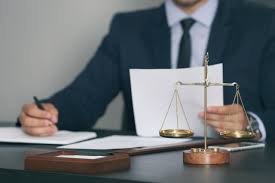How to get a Schengen visa?
Obtaining a Schengen visa is a process that requires careful preparation and compliance with certain rules. In this article, we will consider the main stages of obtaining a Schengen visa and analyze how to properly prepare for this process.
1. Determination of visa type
Before starting the visa process, it is important to determine what type of visa you need. There are several types of Schengen visas:
- Tourist visa (type C)
- Business visa (type C)
- Student visa (type D)
- Work visa (type D)
Each type of visa has its own characteristics and requirements. To correctly determine the type of visa, you can apply for legal advice online or get written legal advice from a specialist.
2. Collection of necessary documents
After determining the type of visa, it is necessary to collect all the necessary documents. The standard package of documents includes:
- Passport
- Visa application form
- Photos
- Medical insurance
- Confirmation of financial capacity
- Confirmation of the purpose of the trip (hotel reservation, invitation, etc.)
It is important to note that the list of documents may differ depending on the type of visa and the specific embassy. For accurate information, it is recommended to seek online legal advice or obtain written legal advice .
3. Legal analysis of the situation
Before submitting documents for a visa, it is useful to conduct a legal analysis of the situation. This may include an analysis of the situation by a lawyer or an analysis of the situation by a lawyer . Such a legal analysis of the situation will help identify potential problems and prepare for their solution.
For example, if you have a history of visa refusals or visa violations, a lawyer can analyze these situations and provide recommendations on how to improve your chances of obtaining a visa.
4. Legal opinion
Based on the analysis, the lawyer can prepare a legal opinion on the situation. Such a legal opinion may include an assessment of your chances of obtaining a visa, recommendations on additional documents that should be submitted, and a strategy for how to conduct yourself during the interview at the embassy.
A lawyer's opinion or attorney's opinion can be an important tool in the visa process, especially if your situation is unusual or complex.
5. Submission of documents
After collecting all the necessary documents and obtaining a legal opinion, the next step is to submit the documents to the visa center or embassy. It is important to remember that some countries require the applicant to be present in person, while others allow documents to be submitted through intermediaries.
When submitting documents, it is important to be prepared for possible additional questions or requests. Online legal advice can help you prepare for this stage and know how to respond to different situations.
6. Interview at the embassy
For some types of visas or in certain situations, an in-person interview at the embassy may be required. This is an important stage for which you should carefully prepare.
Before the interview, it is useful to get written advice from a lawyer about possible questions and the best ways to answer them. A lawyer can conduct a mock interview and provide guidance on how best to present your situation.
7. Additional documents and attorney request
In some cases, the embassy may request additional documents or information. In such a situation, writing a lawyer request can be useful. A solicitor's request is an official document that can help obtain the necessary information from government agencies or other institutions.
For example, if the embassy requires additional proof of your financial capacity, the lawyer can prepare a request to the bank to obtain a detailed account statement.
8. Appeal of refusal
If you receive a refusal to issue a visa, it is important not to panic. Refusal does not mean that you will never be able to get a Schengen visa. In such a situation, it is useful to seek legal help to analyze the reasons for the refusal and develop a strategy for further actions.
A lawyer can conduct a detailed legal analysis of the situation, prepare a legal opinion on the possibility of appealing the refusal and help with the preparation of the necessary documents for re-submitting the visa application.
9. Features of obtaining a visa for different categories of applicants
The process of obtaining a Schengen visa may differ depending on the category of the applicant. Let's consider some features:
For students:
Students who plan to study in Schengen countries usually apply for a long-term visa (type D). To do this, you need to provide documents confirming enrollment in an educational institution, availability of funds for living and studying, as well as a study plan.
For businessmen:
Businessmen who frequently travel to Schengen countries can apply for a multiple-entry visa. For this, it is necessary to provide documents confirming business relations with European partners, the history of previous trips and the financial stability of the company.
For pensioners:
Retirees may face additional requirements for proof of financial capacity. In this case, maybe you would benefit from written legal advice on the best way to present your financial situation.
10. The role of legal support in the process of obtaining a visa
Although obtaining a Schengen visa does not necessarily require the involvement of a lawyer, professional legal support can greatly facilitate the process and increase the chances of success.
A lawyer can provide the following services:
- Conduct an initial analysis of the situation and assess the chances of obtaining a visa
- Help with the preparation and verification of documents
- Provide recommendations on additional documents that can increase the chances of obtaining a visa
- Prepare for an interview at the embassy
- Help with the appeal of the refusal to issue a visa
It is important to note that legal consultation online or written legal consultation can be especially helpful for those who are unable to visit a lawyer's office in person.
Obtaining a Schengen visa is a process that requires attention to detail and thorough preparation. The right approach, preparation of the necessary documents and, if necessary, professional legal support can significantly increase your chances of successfully obtaining a visa.
Regardless of whether you decide to seek professional help or go through the process yourself, it is important to remember that each case is unique. What works for one person may not work for another.
If you are in doubt or have a difficult situation, do not hesitate to seek legal advice. A legal opinion on the situation or a legal analysis of the situation can give you confidence and a clear understanding of your prospects.
Remember that the process of obtaining a visa is not only a formality, but also an opportunity to demonstrate your reliability and seriousness of intentions. Careful preparation and the right approach will help you successfully obtain a Schengen visa and realize your plans for travel or stay in the European Union countries.




































